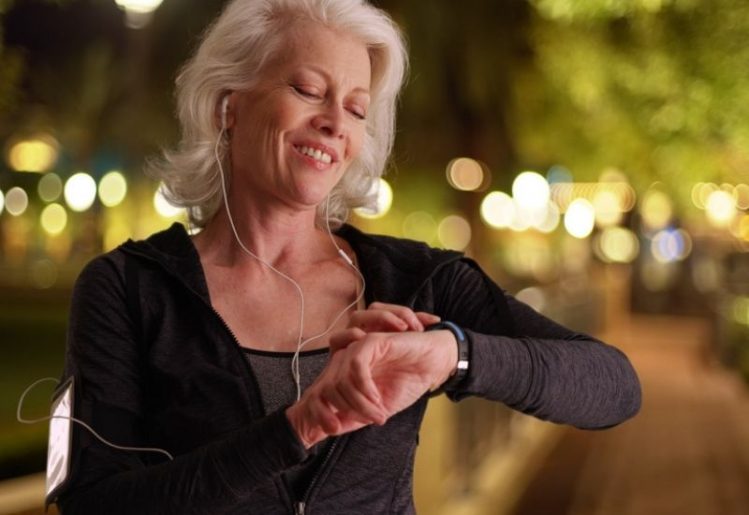Looking to start a new exercise routine? If so, it would be wise to consider the research detailing when is the best time of day to exercise. If you are looking for a definitive time of day that works for everyone, you will likely be disappointed. The fact is that while some people receive more targeted benefits when working out in the morning, other individuals may see more success with an afternoon workout.
Here is what you need to know about the best time of day to exercise and how this information may relate to your specific health and wellness needs.
Best Time of Day to Exercise Research
 For most people, the decision of when to exercise depends largely on external factors such as work schedule, child-rearing duties and other elements of daily life that are beyond one’s control. However, if you are lucky enough to have a choice about when to exercise, you would be wise to look into the increasing body of research that points to the fact that workout timing can affect the benefits that you receive.
For most people, the decision of when to exercise depends largely on external factors such as work schedule, child-rearing duties and other elements of daily life that are beyond one’s control. However, if you are lucky enough to have a choice about when to exercise, you would be wise to look into the increasing body of research that points to the fact that workout timing can affect the benefits that you receive.
Are you looking to lose weight or do you want to use exercise to help regulate your sleep and wake cycles? Understanding the different benefits associated with the timing of your next sweat session can go a long way in ensuring that you get the most out of your time and effort.
Pros and Cons of Morning Exercise
If your fitness goals are to lose a few pounds, you will be best served by scheduling your workouts in the morning hours. For the best results, try working out on an empty stomach. This is because the body has a hormonal profile that makes it easier to metabolize fat and use more of the energy from these reserves during the morning hours, helping you to burn more calories in the process.
There is also evidence that says morning exercisers are less hungry throughout the day; a fact that helps boost weight loss efforts even further. Additionally, a morning workout may elevate your mood throughout the day and help you to feel more productive.
On the flip side, not everyone has time in the morning to grab a workout without it interfering with their sleep schedule. This could leave you feeling lethargic throughout the day. It is also more difficult to exercise at peak performance when you first roll out of bed, thanks to tight muscles and stiffness in the joints. This may mean that you do not see as many of the benefits since you are not moving your body at peak performance levels.
Many people may also need to eat something before working out. If you struggle with finding energy during your exercise session, try eating a small snack heavy on carbohydrates, such as a banana or protein bar, just prior to setting off.
Pros and Cons of Afternoon or Evening Exercise
If morning workouts do not work for your schedule or your temperament, the next most common time of day to fit in a workout is the late afternoon or early evening hours after you finish your work or school day. The benefits of this time of day is that you will likely perform at higher levels simply due to the fact that you have probably consumed a meal or two. This food will increase blood sugar levels, providing the energy that you need to power your body through a grueling workout.
A workout during this time of day will also work to mitigate that notorious end-of-day energy slump. Getting your blood pumping will give you the energy that you need to get through the rest of the day.
Research has also demonstrated that testosterone levels may be higher in the afternoon hours compared to the morning, giving your body a better chance of putting on more muscle. If your fitness goals include bulking up, an afternoon or evening session may be your best choice.
Additionally, a 2020 study out of The Netherlands Cardiovascular Research Initiative demonstrates that an afternoon workout may improve insulin sensitivity, boosting the metabolic effects of the session. This may be good news for metabolically compromised individuals.
 Conversely, working out too late in the day may disrupt the body’s natural circadian rhythms, interfering with normal sleep patterns. While some people may be able to handle an afternoon or evening workout with no detrimental sleep effects, others may experience issues with the sleep and wake cycles, particularly if the exercise is performed in the evening hours.
Conversely, working out too late in the day may disrupt the body’s natural circadian rhythms, interfering with normal sleep patterns. While some people may be able to handle an afternoon or evening workout with no detrimental sleep effects, others may experience issues with the sleep and wake cycles, particularly if the exercise is performed in the evening hours.
Scheduling a late-day workout also makes it more likely that you may not be able to fit it in. Everyone has been in the position where the day just slips away from you. Morning workouts are more likely to happen without the interference of distractions.
At the end of the day, the most important thing is that you are simply exercising. If the time that you pick is not working for you, then it is important that you pick a time that will actually make it more likely that you get moving. The bottom line is the best time of day to exercise is the time that works best for you.


